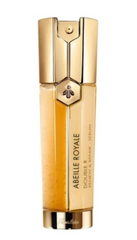PHA, BHA & AHA Explained: Best Choices for Skin
Acids - they're potent, strong, and highly concentrated. Not exactly the ingredients you'd think of putting on your face. But acids are skincare’s greatest plot twist.
When used with the right levels and recommended concentrations, acids can upgrade your skincare results - brightening, whitening, and clarifying - from meh to mesmerising. Get to know these skincare power ingredients, and how to choose one for your skin concerns.

So, What’s So Special About Acids?
Facial acids often refer to AHAs (Alpha Hydroxy Acid), BHA (Beta Hydroxy Acid), and PHA (Polyhydroxy Acid). To unveil younger, smoother, brighter-looking skin, these acids - also known as skincare actives - literally go down to business. They shake dead skin to their core so they can easily eliminate dead cells and bring out healthier cells.
AHAs, BHAs, and PHAs are the highlights of toners, serums, and exfoliants. But which of these acids should you choose for your specific skin concerns?
AHAs
Derived from both animals and plants, Alpha Hydroxy Acids can be found in multiple skincare products that specifically target skin ageing, and dry skin. Ideal for people with dry, combination skin.
Among the many benefits, AHAs are known to:
- Promote collagen production
- Improve the appearance of lines and wrinkles
- Brighten skin complexion
- Prevent acne breakouts.
There are at least 7 types of AHA. However, the only kinds that prove promising and safe are the glycolic acid and lactic acid.
Glycolic Acid
Glycolic acid is simple yet versatile. This compound derived from sugar cane is lightweight, and has the ability to seep quickly into the skin’s upper layer. The benefits of glycolic acid include minimising the effects of skin ageing, reducing acne inflammation, and exfoliating the skin gently. Proven safe for all skin types, you can use glycolic acid for both day and night.
Combining the power of royal jelly, and glycolic acid, Guerlain’s Double R serum promises skin renewal and repair in the gentlest way possible. Features a soft peel technology that reduces fine lines and wrinkles, resolves dullness and uneven texture, and restores the skin’s firmness and elasticity.
Lactic Acid
Derived from milk, Lactic acid is found in anti-wrinkle, anti-pigmentation products. Compared to Glycolic acid, Lactic acid is milder. It gently peels off the upper layer of the skin to target issues like age spot, and dull skin. Even though it’s considered a milder acid, Lactic acid is still considered a potent AHA.
BHAs
BHA is mainly used for acne and skin damage. The formulation of BHA allows it to go deeper into the skin’s surface to solve more serious skin issues like blackheads, whiteheads, and acne. BHA sticks to oil, so it helps eliminate excess sebum, slough off dead skin cells, and reduce clogged pores. Best for oily skin.
Salicylic Acid
The most popular BHA in the skincare market is salicylic acid - a powerful component known for its ability to stop and heal acne. It delivers a one-two punch with its effects - it exfoliates the skin while keeping your pores clear.
PHAs
The newly-discovered cousin of the AHA. PHAs are water-soluble components that smoothens and evens out the skin. Thanks to its natural ability to bind itself with water molecules, PHA also helps moisturise the skin.
But wait, the effects don’t stop there. PHA also lessens the effects of glycation (a process that weakens collagen and elastin production) making your face look less wrinkly. This compound is also reparative - it soothes breakouts so it’s perfect for sensitive skin, and dry skin prone to irritation!
Gluconolactone
This acid sounds geeky, but it’s fairly simple - it delivers the same anti-ageing, anti-acne benefits of AHA without the sting and other side effects. Ideal for anyone with sensitive skin who wants to achieve a brighter, clearer, younger complexion.
Who knew acids can actually work a ton of wonders to your skin? Add these ingredients to your routine and be amazed by the skin benefits of facial acids!
Need some help putting together the best skincare routine for your skin type? Try our skin quiz!












